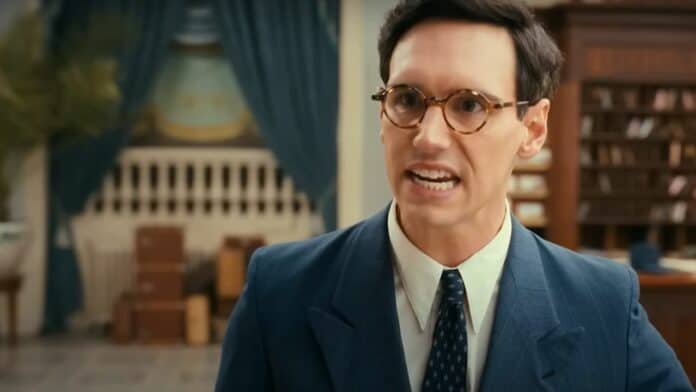Transatlantic follows the American Emergency Rescue Committee, which works to rescue refugees during World War II and help them get out of France. The series is now streaming on Netflix.
Story
In 1940, as the north of France comes under the control of the Germans in World War II, the citizens move to the unoccupied south of France in order to leave the country before the south could also fall to the enemy.
The Emergency Rescue Committee in Marseilles, led by an American man named Varian Fry and funded by an heiress named Mary Jayne Gold, helps artists, writers, and other thinkers get out of France.
Mary Jayne helps two siblings, Albert and Ursula, flee from the country, but Albert decides to come back with another woman, Lisa Fittko, and assist the committee. Fry also reunites with an old acquaintance, Thomas, who allows the committee to operate from his villa, Villa Air-Bel.
While the committee is aided by various individuals, there are people like the American consul and the chief of police that stand in their way time and time again. It is a matter of life and death for the refugees, and the committee must do everything that it can to help them.
Performances
Gillian Jacobs gives an adequate performance as Mary Jayne, an heiress who wants to use her father’s money to help those in need. Jacobs does as well as she could have with the space the script gives her character.
Cory Michael Smith’s performance as Fry was impressive. Fry is one of the characters that leave an impact on the audience, and it would not have been possible without the sincerity that Smith puts into his character.
Corey Stoll is convincing as Patterson, an American who embodies the ideals of capitalism. Similarly, Lucas Englander, Ralph Amoussou, and Deleila Piasko do seem like passionate people who are ready to risk their lives and fight fascism.
Positives
The show criticizes the stance taken by the US at the beginning of the war. It becomes clear that neutrality, more often than not, works in favor of the oppressor. This neutrality, as well as accepting refugees on the basis of their nationalities, resulted in several deaths.
Furthermore, characters like Patterson are concerned more about the profits that the US is making and their own benefit than the war or saving lives. It makes the audience think about the vices of capitalism.
The audience also gets to see the dilemma that the colonized people faced in terms of picking a side during World War II. Paul states, “War is complicated,” and the show justifies the statement.
Additionally, Paul’s comment on the colonized people living their whole lives in the same fear that people in Europe are facing in wartime is the show’s way of depicting that violence is not an anomaly for the colonized; it is a part of their daily lives.
In the show, human connections and celebrations are juxtaposed with the war. While most of the relationships formed fail to leave an impact, the end of Fry and Thomas’ love is moving, as the two men who have been helping others cannot get their happily ever after simply because their relationship would not be accepted.
There are instances when the audience is made to feel the impact of losing one’s homeland and identity on individuals. These scenes portray the plight of refugees, which is relevant even today.
Negatives
While the show properly introduces the role played by people like Fry and Mary Jayne, it fails to convey how and why thinkers and artists like Hannah Arendt and Marc Chagall were important.
The show has been shot in Mercilles, and the sets are beautiful, but that does not give the impression that this is a wartime drama. The ugly side of World War II that evokes fear in the audience is completely missing.
Furthermore, the thrill that the audience expects from a show like this is also missing. Even when the characters carry out prison breaks or flee the authorities, the audience does not feel the excitement that they should.
The plot never completely captures the audience’s attention despite its intriguing subject matter. It seems to be all over the place. It only comes together and becomes interesting towards the end.
Verdict
This show is not an intense wartime drama, but the ideas depicted in the show are thought-provoking. However, there are many shows and films based on heroes of the Second World War, and Transatlantic fails to stand out.
Transatlantic

Director: Stéphanie Chuat, Véronique Reymond, Mia Meyer
Date Created: 2023-04-05 23:05
3
Also Read: Transatlantic ending explained: Does Albert leave with Mary Jayne?

